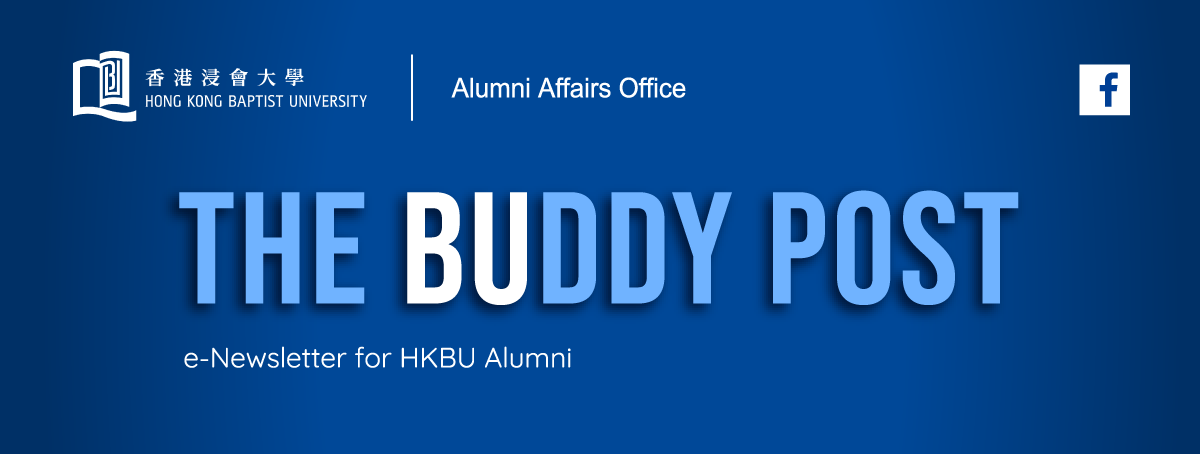People・Discovery
HKBU has nurtured over 140,000 graduates since its inception in 1956 and numerous alumni have in the past made notable achievements in diverse areas and professions. In this connection, we are pleased to introduce alumni from different professions and invite them to share their knowledge discovery with us.
Sharing by Alumnus Alvin Ng on Coaching
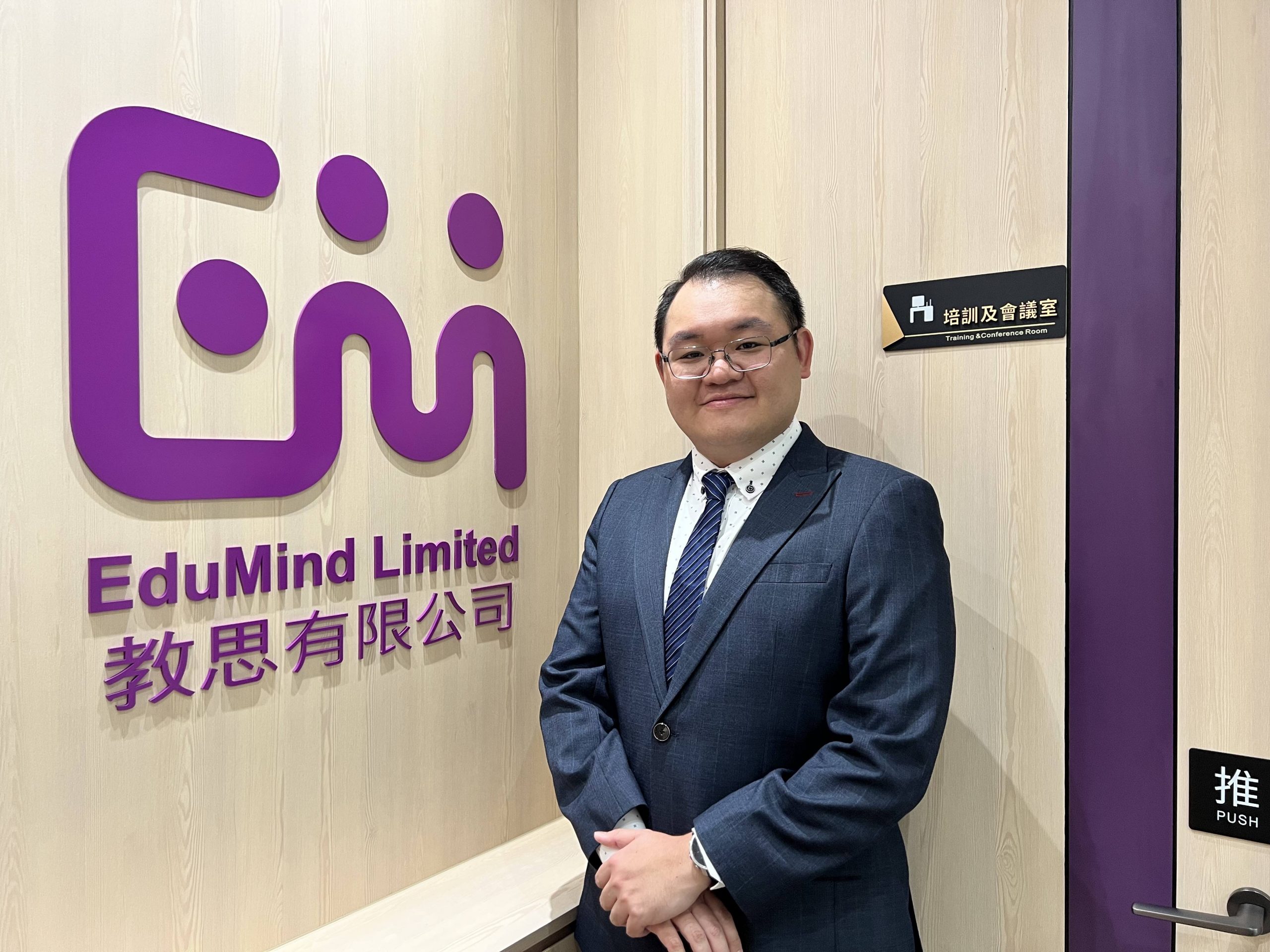
Alumnus Alvin Ng Man-hin
Alumnus Alvin Ng Man-hin (Humanities; Education) has devoted himself to the education sector for over 10 years. On top of being a registered teacher, he also carried a number of roles related to youth and community education in the past, including Education Officer (Training and Curriculum Development) of Hong Kong Committee for UNICEF, Life Coach and Life Planning Officer of Christian Family Service Centre and School Headmaster of Evening Secondary School: Hong Kong College of Technology (Kowloon Technical School).
His enthusiasm for education has extended to the aspects of coaching, training and educational project design, which has driven him to become a certified meta-coach and trainer. He set up his company, EduMIND Limited in 2020, taking up the position as Chief Service Designer and Principal Coach. He has been serving numerous schools and NGOs, providing tailor-made educational programmes for schools and NGOs and coaching services for youths and professionals.
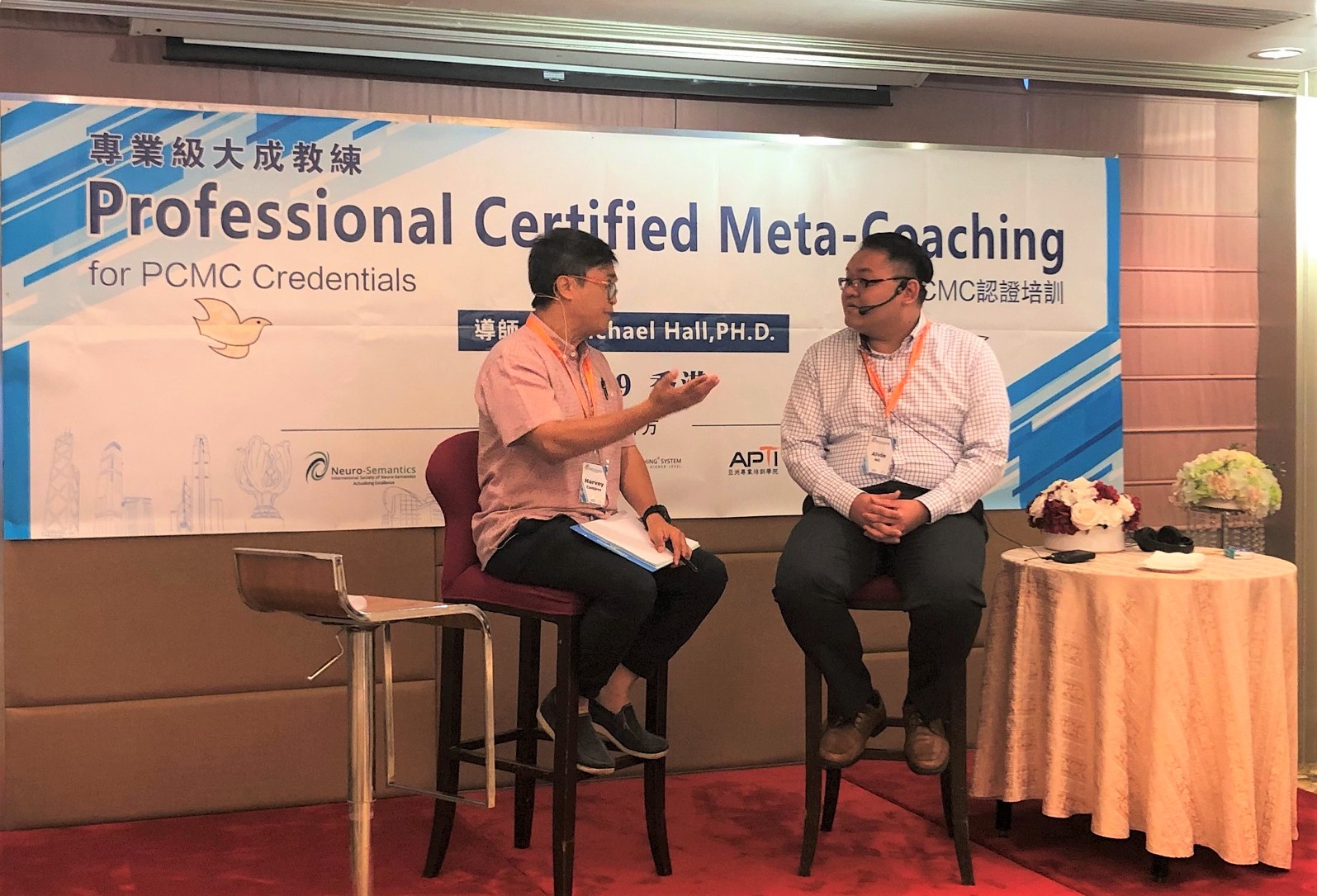
Alumnus Ng is the Director (Director Board of ISNS Greater China) and Regional Director of MetaCoach Foundation Hong Kong.
1. Please briefly introduce your work as a coach. How has coaching changed your life and career?
As a coach, I work with individual, a group or an organisation. Subject to clients’ needs, I adopt the coaching methodology to facilitate my clients in achieving their goals. For example, I strive to help them discover their own values and vision in life or career, so that they become more determined to make choices in life on their own. Also, it is important to help clients work best in all the important situations in their lives and figure out the core of their problems, such that as a coach, I can design the most effective and customised solution for them. Sometimes, I also apply those skills I learnt from coaching to teaching and counselling so that my services could be more unique, innovative and effective.
I first came across coaching in 2016, and I would say coaching has changed my life and career a lot. After learning meta-coaching, I can master the skills and strategies in exploring the meaning of life and stay passionate always. Not only did I reduce my weight by 20kg in 6 months, I was also able to enjoy my work without conflicting my values, driving me to be more innovative in training and teaching. As a graduate in Humanities, I would say coaching, especially meta-coaching, somehow applies the theories in Humanities. I am glad that I can actualise what I learnt at HKBU in my work, especially the programme of Humanities and concentration courses in organisational communication, in order to groom the whole person development of my clients and students.
While conducting coaching sessions, I have the opportunity to listen to and get to know a spectrum of thinking and behavioural patterns. Some of them are really inspiring, which can bring new insights to my life and career. For example, when I serve as a second-half life coach, I am able to gain a lot of insights and inspirations to prepare for my future retirement.
Being a coach, I must learn to be flexible. It is true that being flexible in all aspects is challenging. But as a professional coach, I believe I can unleash my potentials by mobilising my internal (e.g. talent, strength, past experiences) and external (e.g. personal network, peer support) resources through a coaching dialogue.
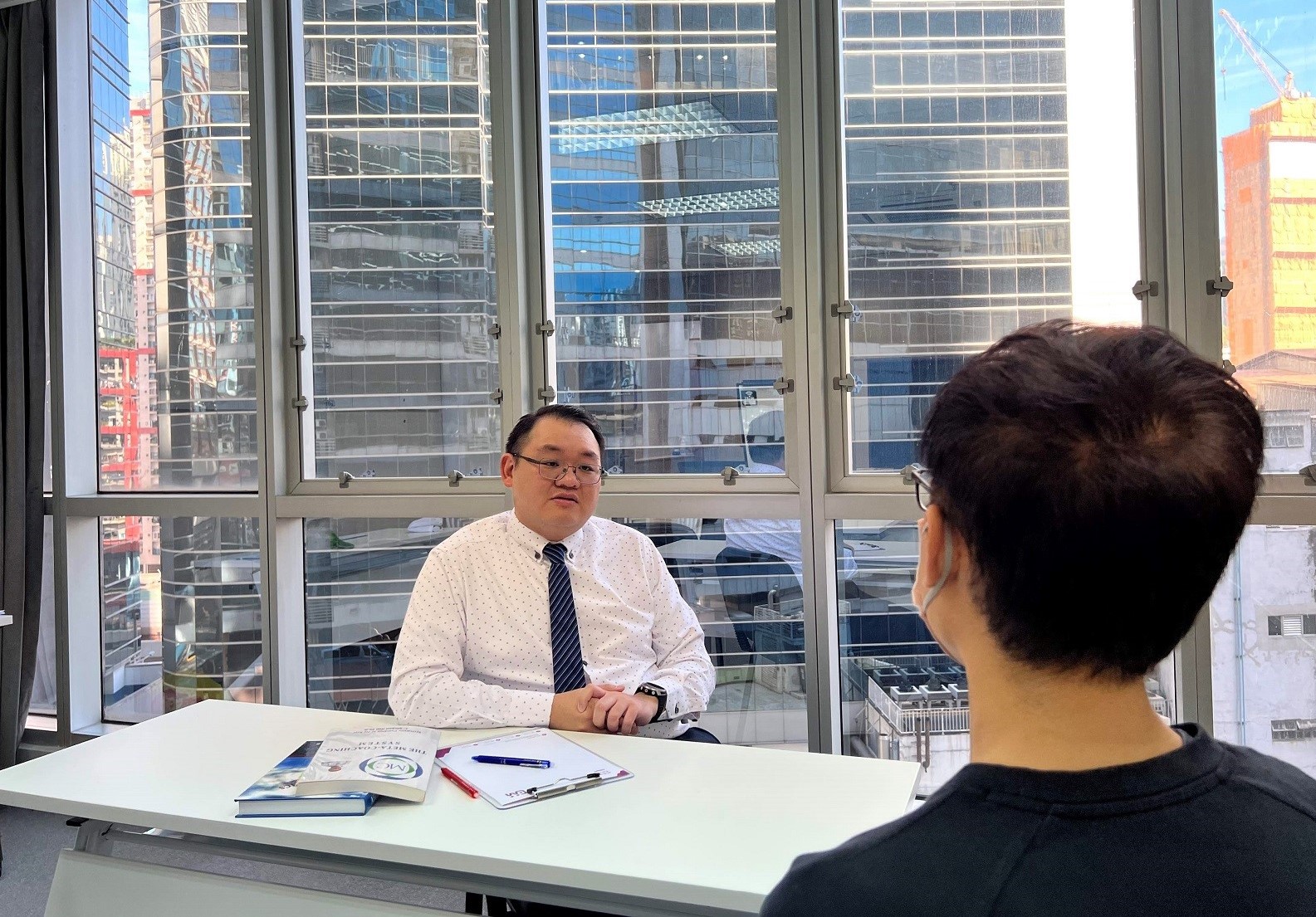
Alumnus Ng conducts a one-to-one coaching session.
2. Are all people suitable for receiving coaching? How can I judge whether I should invest in a coaching session?
Not everyone is suitable for receiving coaching. Sometimes clients may not understand what kind of support they exactly need. They may either need a session of training, consultation or therapy. Especially for those who are not mentally healthy or seeking help from clinical professionals, coaches have to be very careful when conducting a coaching session. In view of this, I usually offer an interview and consultation session before coaching, helping my clients make a right decision and investment for the right services.
On the other hand, regardless of being a coach or a client, being coachable is essential. People with more coachable characteristics tend to be more receptive to the transformative power of coaching. There are several coachable factors, such as openness, ego-strength, commitment to growth, relationship readiness, vulnerability, patience etc. If you want to test whether you are coachable, take a look at the questions below. You may bring the result to consult your coach.
- Do you have goals, hopes, and dreams for yourself and your career?
- From 0 to 10, how open are you to changes, learning and personal developments?
- From 0 to 10, how sufficient is your ego-strength for facing reality as it is?
- From 0 to 10, how ready are you to talk about your needs and weaknesses?
- From 0 to 10, how passionate are you about making a change or transformation?
- From 0 to 10, how committed are you to investing in your own development?
3. For those who are interested in obtaining a qualification for coaching, please share 1-2 tips with them.
Many clients came and asked me whether they should get a qualification for coaching or what kind of qualification they should obtain. Being a coach, I always use questions to facilitate my clients to figure it out, such as “What is your understanding about coaching?”, “Why do you want to attain a qualification?” and “What do you want to achieve through attaining the qualification?”
Since coaches are not registered in any governmental bodies in Hong Kong, there are lots of “qualifications” for coaching nowadays. Some of them just require you to spend 2 to 3 days of training for being a certified coach, or even being a certified coach trainer. Some of them, like my qualification in Neuro-Semantics and Meta-Coaching, requires me to complete at least 700 hours of coach-specific education, practices and competency assessment for being a Professional Certified Meta-Coach, and a 15-day training plus assessment for being a first-tier trainer. To become a master trainer, the qualification process might even take more than 3 to 5 years with assessment conducted outside Hong Kong. In view of this, “Why do you want to attain a qualification?” is really an important question for those who are interested in coaching to reflect upon. I would suggest them to conduct a comprehensive research on the subject matter before investing in any coaching qualifications.
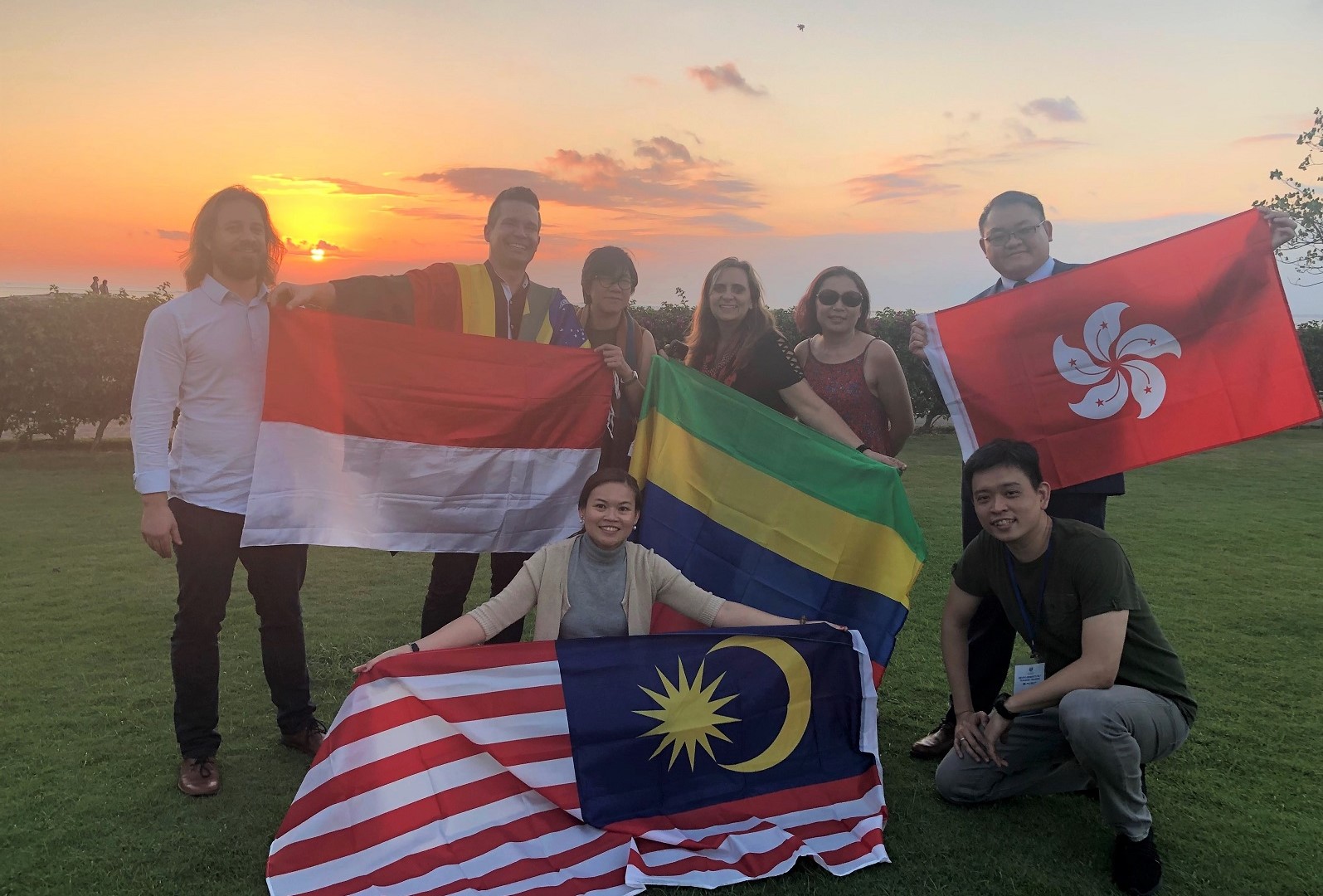
Alumnus Ng meets and exchanges with coaches from other countries.




